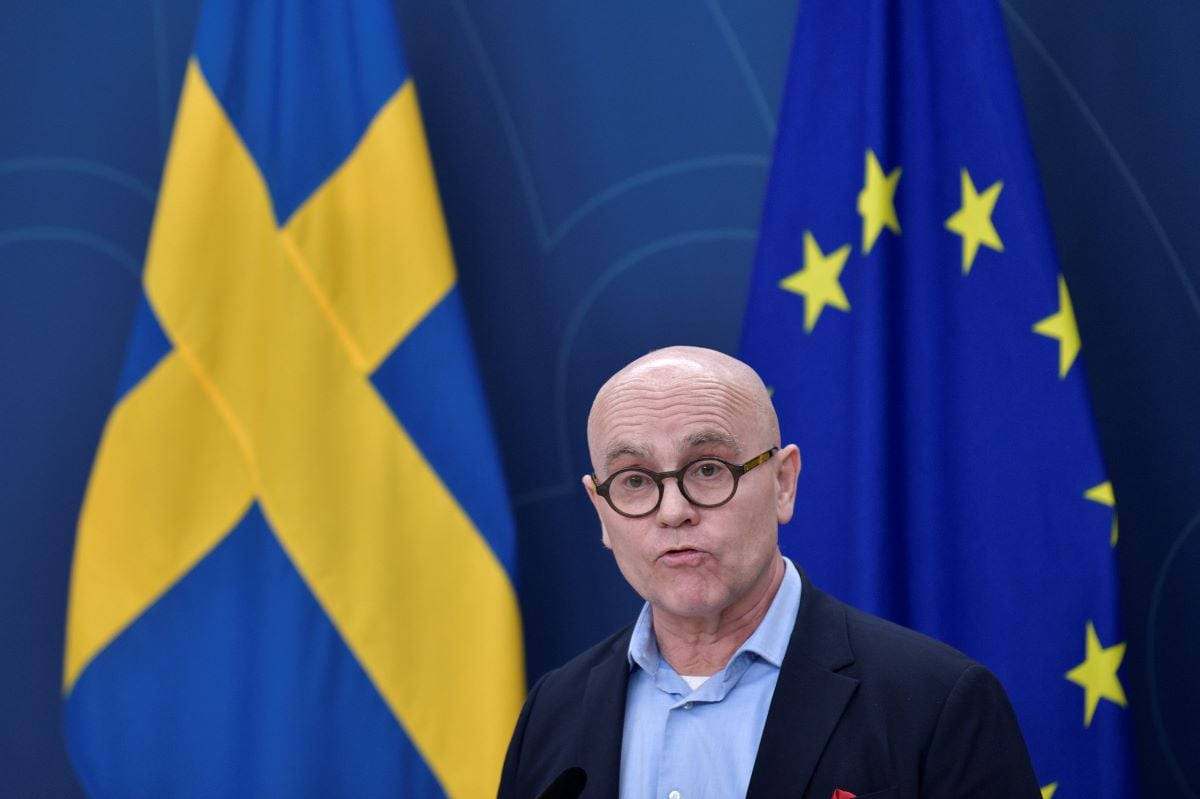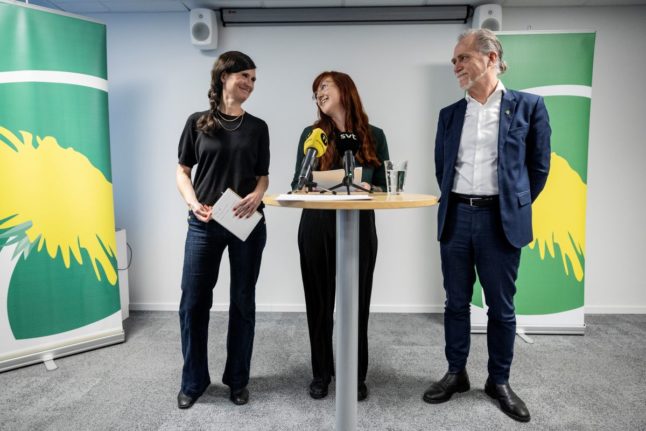A year on from the formation of Sweden’s three-party right-wing coalition government, it’s safe to say that everything is not going entirely according to plan.
Back then, leading Moderates were reportedly predicting behind the scenes that the government’s wholesale adoption of the Sweden Democrats’ migration policy would eat away at support for the far-right party — as happened in Denmark after the two main parties adopted the hardline migration policies of the Danish People’s Party.
In Sweden, though, the opposite has happened.
A poll by Indikator Opinion for Swedish Radio published on Friday found that fully 22 percent of people in Sweden would now vote for the Sweden Democrats, making the party bigger than the three government parties — the Moderates, Christian Democrats and Liberals — combined.
The Moderates, meanwhile, are polling at just 16.1 percent.
This isn’t far off the 15.3 percent of the vote the party received in its disastrous 2002 election, forcing its then leader Bo Lundgren to resign, with his replacement Fredrik Reinfeldt then dragging the party right to the centre of Swedish politics.
Perhaps most worrying for the Moderates was the result of an additional question in which the pollsters asked about who respondents would most like to be prime minister.
They found that nearly as many would like the far-right party's leader, Jimmie Åkesson, to be prime minister as supported the Moderates' Ulf Kristersson.
Social Democrat leader, Magdalena Andersson, meanwhile, was the chosen candidate of twice as many voters as either Kristersson or Åkesson.

Why is the Green Party in the mire?
Commentators on the poll understandably focused on the predicament of the government parties.
But it is also striking just how completely the Green Party has failed to capitalise on the government's dismantling of Sweden's climate policy, slashing the biofuels obligation, and as a result ending the country's chances of meeting its transport emissions goals for 2030.
The Greens are only just 4.8 percent, meaning they are slightly down on the 5.1 percent they managed in the September 2022 election, after a year in which the government has faced sustained criticism from both businesses as well as from green groups for squandering the country's lead in the green transition.
Part of the reason must come down to leadership.
On October 18th, John Hassler, the Stockholm University economist the governnent had tasked with proposing a new climate policy, presented his conclusions.
There was much that was controversial: Hassler proposed scrapping Sweden's transport emissions target for 2030 and replacing it with a new, somewhat nebulous, "electrification" target. He also called for the governnment to part-fund new nuclear power stations, a tacit acknowledgement that the technology cannot compete with renewables on cost.
It was, according to the climate researcher Mathias Fridahl, "a pretty significant reduction in ambition".
But the Green Party was nowhere to be seen.
Instead, the headlines over the past few weeks have focused on the ugly internal leadership battle that has subsumed the party in the run-up to its congress on November 17th, when it is due to appoint a replacement to its leader Per Bolund.
Since 1984, the party has had two leaders, one male and one female, which it calls "spokespeople", and its female leader, Märta Stenevi, who is not due to stand down, has spent the last month under attack.
The dispute broke into the public eye on October 4th, when the Dagens Nyheter newspaper reported alarm from within the party's parliamentary organisation over Stenevi's "toxic leadership style", with complaints apparently backed by the representatives of Unionen and Saco, the two unions represented among the party's employees.
On October 19th, the internal battle hit the headlines again when the party's nomination committee put forward Daniel Helldén, the former councillor in charge of transport in Stockholm, as its proposal for the new spokesperson.
This was seen as a blow to Stenevi, who has long argued that the party should have a broad focus, with policies on all issues and not just on climate and the environment (see our interview here). Helldén, on the other hand, has pushed for a more narrow, single-issue focus at the same time as he, in Stockholm, has been willing to go into coalition with the Moderates, Liberals and Centre Party.
After Helldén was chosen, the Svenska Daglabdet newspaper reported that Stenevi had returned to her home in Malmö to avoid taking part in a press conference wth Helldén. The party then reported on October 21st that the party had launched a formal internal investigation into Stenevi's leadership style.
Stenevi rejected the claim that she had refused to take part in a press conference as "ridiculous", claiming to have gone to Malmö for family reasons, but the number of leaks from sources within the party suggest the knives are out.
The Svenska Dagbladet journalist Maggie Strömberg, who wrote a history of the Green Party, last week likened Stenevi's position to that of the Moderates' former leader Anna Kinberg Batra before she was ousted in 2017.
"My sense is that Märta Stenevi is pretty alone right now, and I think you can see that in the way she's handled the crisis," she said in the newspaper's Politiken podcast. "I think that might have something to do with the fact that she doesn't know who she can trust."
She pointed out that while Helldén had sought to dampen the conflict, praising Stenevi on TV4 for her debating skills and downplaying the differences between them, Stenevi had "taken the opposite approach".
"She has still not uttered Daniel Helldén's name, either at the press conference or in her post [on social media]," she said. "It's absolutely obvious that she wants someone else to be chosen at the conference. She's not about to go out and talk about how good he's been at pedestrianising the streets in Stockholm."
What is so striking is that the nomination committee should have chosen to put together two such polarising figures. Stenevi herself is a skilled power player, becoming party secretary in 2019 against the wishes of the party leadership. Helldén, on the other hand, is mistrusted in the party for his willingness to join hands with right-wing parties.
Will Stenevi survive the next month as leader, or will the party's internal investigation see her ejected or forced to resign? And if she survives, how will she work with Helldén, particularly if she suspects that he may have had a role in the campaign against her?
Who knows? It's perhaps an indication of just how unmanageable the party has become that when Isabella Lövin, thre green politician who served as deputy prime minister for nearly five years, announced her return to politics last Friday, it was to the European Parliament in Brussels and not to the Riksdag.
Politics in Sweden is a weekly column looking at the big talking points and issues in Swedish politics. Members of The Local Sweden can sign up to receive an email alert when the column is published. Just click on this “newsletters" option or visit the menu bar.




 Please whitelist us to continue reading.
Please whitelist us to continue reading.
Member comments